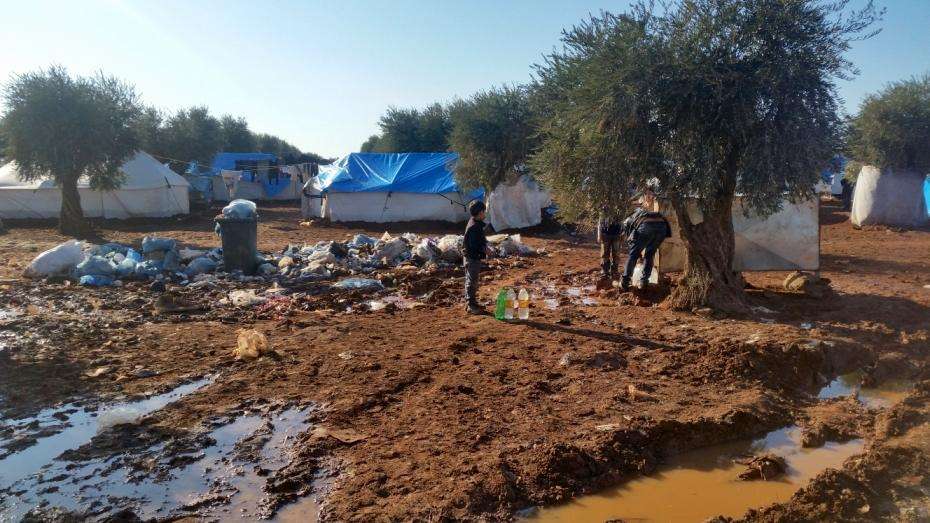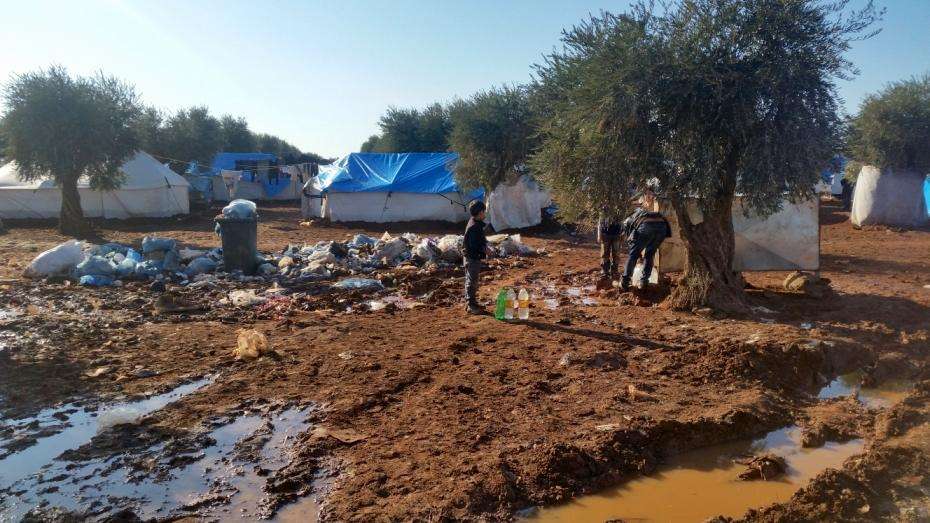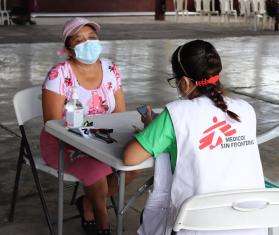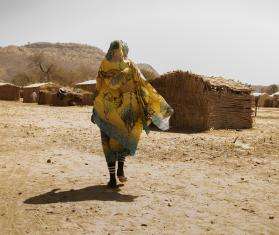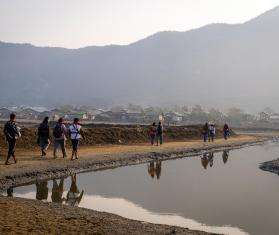GAZIANTEP, TURKEY/NEW YORK—Any escalation of the conflict in northern Syria’s Azaz District could have dire humanitarian consequences, as an estimated 30,000 people have already fled toward the Turkish border in recent days, with medical services disrupted throughout the district and basic aid lacking for the displaced, the international medical humanitarian organization Doctors Without Borders/Médecins Sans Frontières (MSF) warned today.
The local medical system is close to collapse. Several hospitals and smaller health facilities in Azaz and rural areas around Aleppo city were hit by airstrikes in the last two weeks, including at least three MSF-supported hospitals. Many medical staff have fled.
"Azaz District has seen some of the heaviest tolls of this brutal war, and yet again we are seeing health care under siege," said Muskilda Zancada, MSF head of mission in Syria. "We are extremely concerned about the situation in the south of the district, where medical staff, fearing for their lives, have been forced to flee, and hospitals have either completely closed, or only offer limited emergency services."
Account from MSF Pharmacist: "Tens Of Thousands Of People On The Move" in Syria
The newly displaced are generally unable to join existing camps in northern Azaz District, where tens of thousands of previously displaced people have gathered.
"The camps have no capacity to take in new arrivals," Zancada said. "There is a risk that people, including young children and the elderly, could be stuck living in the open in freezing conditions, for several days at least. We expect that there could be severe health effects, and pneumonia is a big concern."
MSF teams in Azaz District are distributing essential items such as tents and blankets to displaced people, and have assisted nearly 800 families so far.
MSF demands that all warring parties take the necessary measures to prevent further massive displacement and a deepening humanitarian crisis. Attacks on the few remaining functional medical facilities must stop immediately, MSF said. Fighting and bombing campaigns in heavily populated areas must be halted, at least until civilians can flee to secure areas with access to basic services.
MSF also warns that overwhelmed relief agencies, struggling to meet needs for shelter, food, water, and sanitation, will not be able to cope with new influxes of displaced people.
Since February 6, MSF’s hospital in northern Azaz District has seen about a 50 percent increase in patients treated in its outpatient department and is currently performing about 160 medical consultations per day. The majority are for respiratory tract infections. MSF has also increased the bed capacity of the hospital from 28 to 36, and is preparing to expand further if necessary.
Account from MSF Head of Mission: “Camps So Close To The Front Lines Might Be In Danger”
